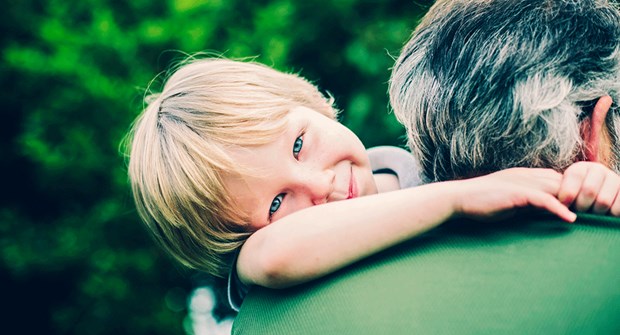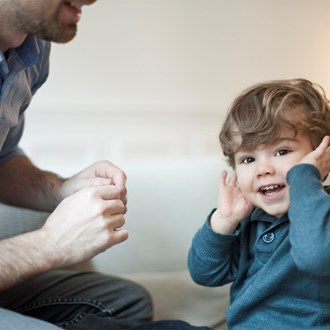Controversial Meme Sends Powerful Message About Forcing Children To Hug

'I am 5. My body is my body.'
By Livia Gamble
December 19 2016
There’s nothing quite like a warm hug!
However, a controversial meme is sending a powerful message when it comes to hugging children: it should be consensual.
The meme, posted on the A Mighty Girl Facebook page says: “I am 5. My body is my body. Don’t force me to kiss or hug. I learning about consent and your support on this will help me keep myself safe for the rest of my life.”
In the caption, the publication refers to an article written by Katia Hetter and published on CNN titled, I don't own my child's body.
“Katia Hetter taught her daughter an important lesson with a very simple phrase: 'I would like you to hug Grandma, but I won't make you do it.' Her then four-year-old daughter was going on what she describes as 'a hugging and kissing strike,’ the post begins.
Instead of forcing her daughter to hug and kiss, Hetter used the opportunity to teach her daughter that it’s okay to say no.
As Hetter writes in her article: "I figure her body is actually hers, not mine. It doesn't belong to her parents, preschool teacher, dance teacher or soccer coach. While she must treat people with respect, she doesn't have to offer physical affection to please them. And the earlier she learns ownership of herself and responsibility for her body, the better for her."
While rejecting a hug from a family member might seem rude, Hetter says her daughter has to be “polite when greeting people.”
"When family and friends greet us, I give her the option of ‘a hug or a high-five.’ Since she's been watching adults greet each other with a handshake, she sometimes offers that option.”
The upside to this is that when Hetter’s daughter does give someone a cuddle, they know it’s real!
The post has been shared over 173,000 times since October 19. The reaction on Facebook has been mostly positive with many describing Hetter's lesson as a "great idea".
"I never thought about the topic this way..." one commenter said.
Another added: "Interesting thoughts about how we raise our children!"






